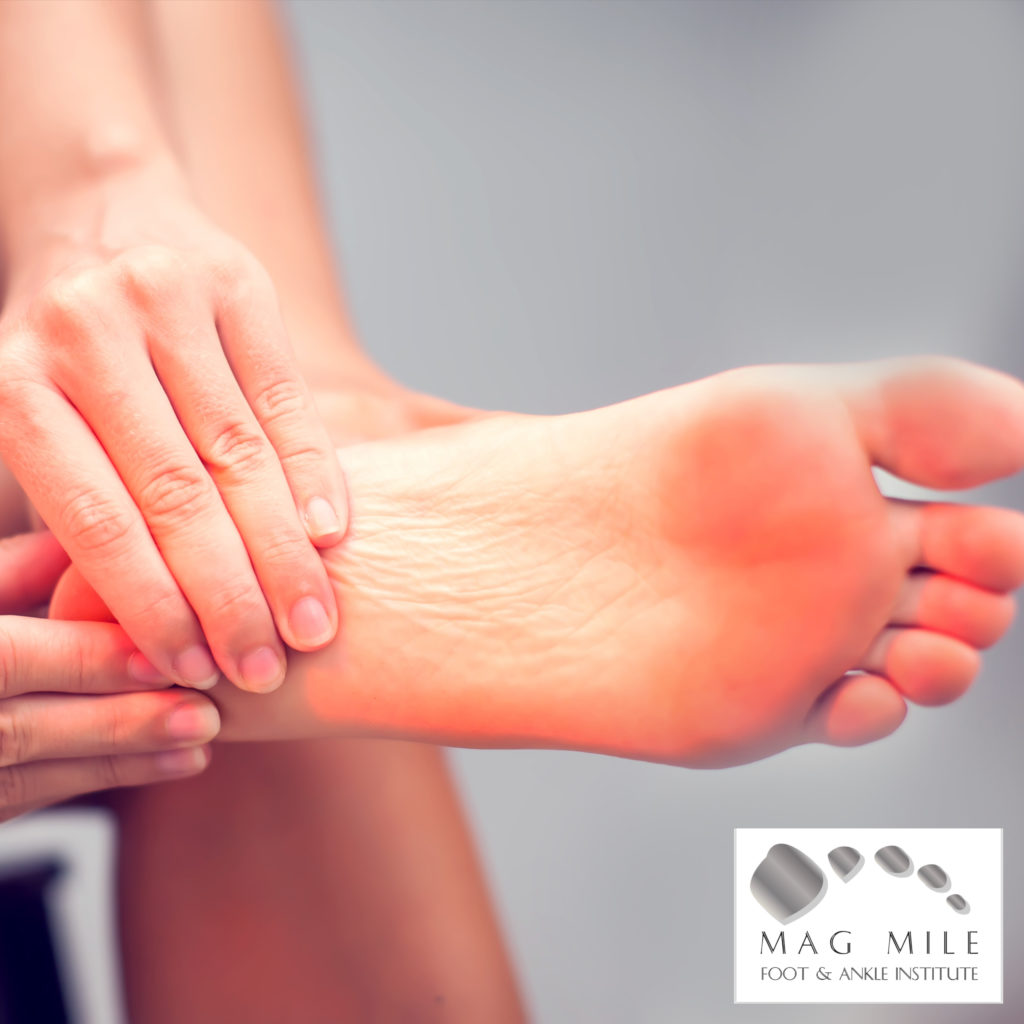Heel Pain – Causes, Prevention and Treatment
Heel pain can feel very different for everyone. While one person can notice a sudden tightening sensation in their heel after a strenuous workout, another person’s heel pain can arise overtime and become obvious after simply sitting in a chair all day. Heel pain can be complicated, and everyone experiences it differently, however, persistent pain can sometimes indicate a more serious condition.
Let’s dig into some of the most common causes of heel pain.
Causes of heel pain
Heel pain is one of the biggest symptoms of plantar fasciitis, a somewhat common foot condition that causes inflammation of the tissue in the foot called the plantar fascia. This dense band of connective tissue supports the bottom arch of the foot – the plantar side – and extends from the heel bone to the metatarsal bones. The metatarsal bones are those five longer bones in between the midfoot and the toes. Most people feel pain in their heel once the inflammation has spread from the heel all the way to the toes.
Other causes of heel pain
While plantar fasciitis is one of the most common reasons of heel pain, other foot conditions may also be to blame, such as:
- Tarsal tunnel syndrome
- Arthritis
- Calcaneal cysts
- Plantar fascia tear
- Gout
- Achilles tendonitis
If you are experiencing persistent heel pain that continues increasing in intensity, there is a good chance it is plantar fasciitis, however, only a skilled professional can diagnose this.
Winter is a good time to tune in and listen to the pain
Since we tend to exercise less and, in general, sit more during the winter, it’s a good time to tune in and pay attention to see if your heel pain gets worse during this time of year.
One sign that your heel pain may be caused by plantar fasciitis is if you notice the pain either starting or getting worse after sitting for many hours at a time (while at work or on a plane, for example). Most people first complain of pain, or say it gets worse, after being stationary for a long period of time. On the flip side, for others, the pain is the worst after they exercise without first properly stretching. Many runners are diagnosed with plantar fasciitis since they are on their feet for extended periods of time, and may not stretch enough to warm up their muscles, or get the proper foot support from their shoes.
Ways to prevent heel pain
While some conditions like arthritis and even plantar fasciitis are hereditary and there’s not much you can do to prevent them, other habits and measures can be taken to help prevent heel pain. Here are some tips to keep those heels in tip top shape!
- Avoid flat shoes without proper arch support.
- Wear arch-supporting shoe inserts.
- Avoid walking barefoot on hard surfaces.
- Switch up your exercise routine for a healthy balance of high and low impact.
- Avoid heels over 2 inches high.
- Stretch the arches of your feet before running or exercising.
- Get regular foot massages to loosen up tight muscles.
- Maintain a healthy weight for your height.
Treatment options for chronic heel pain
If you experience chronic heel pain, it is best to get a proper professional diagnosis before attempting to figure out the best treatment option. Once you get a proper diagnosis, whether it is plantar fasciitis, or a result of improper self-care, the most common, non-invasive treatments include:
- Resting your foot for a longer amount of time
- Stretching the arch of the foot with specific exercises
- Icing the foot
- Taking ibuprofen for temporary relief
- Wearing custom-made orthotics in your shoes
More invasive treatment options for heel pain include:
- Steroid injections
- Tenex procedure
- Surgery
Most treatment options for heel pain will depend on your age, overall health, past medical history, and of course, your diagnosis. For instance, if plantar fasciitis runs in your family, or if you have a history of illnesses involving inflammation, your doctor may suggest surgery if your symptoms are more extreme. However, if your symptoms don’t interfere with your life negatively, you may opt to choose non-invasive treatments techniques and do very well with those solutions, but this really varies from person to person.
